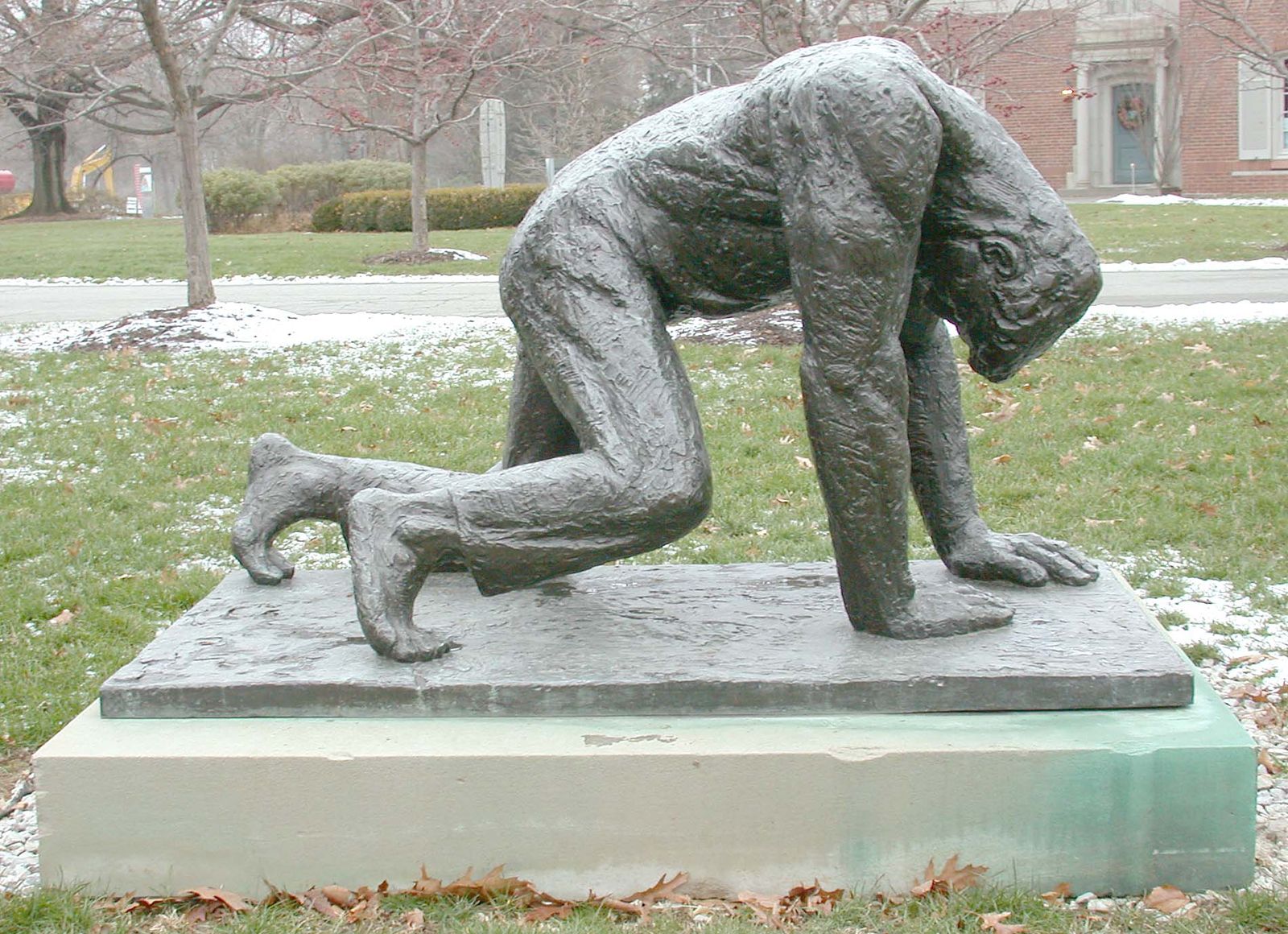 Stained, again. “Oh, no! Not again!”
Stained, again. “Oh, no! Not again!”
As I closed my Bible and put it on the side table next to the rocker by the window, I looked down at the little spatters of burgundy on my favorite white everyday top. I must have, once again, held the tiny communion cup too close when I’d opened it.
There have been seasons in my life where I take communion at home with the Lord every morning. For years, I used grape juice and bread or crackers, but a few months ago I purchased a box of pre-filled communion cups and wafers, like those used in many, perhaps most, churches. The plastic lid covering those cups is hard to remove.
In other seasons of life, I have taken communion at home as the Lord leads like, for example, when I am deeply convicted of sinning against the Lord or another person in some way, like this morning or when I want to commemorate or celebrate something with the Lord.
God cares very much about celebrating important things by doing something concrete, like the Lord’s Supper and meeting with Him at church on the Sabbbath day. Consider also the feasts, the festivals, all the altars He commanded to be built in the Old Testament. And how about the twelve stones taken out of the river bed of the Jordan to celebrate the miraculous crossing of the river described in Joshua 4:1-11?
God’s ways to deal with sin. I hasten to say that this is my personal habit, something Holy Spirit has put on my heart to do after I heard about it from others. There is no verse in the Bible that tells us we must take the Lord’s Supper each time we are convicted of sin. The blood Jesus shed on the cross paid the full price for sin once and for all. By faith in His sacrifice my sins are forgiven and forgotten by God. The practice of bringing a sacrifice for sin to the temple was for God’s people before Jesus came.
Then Jesus came to earth and fulfilled the Law with His life, and His death, burial, and resurrection. Jesus made the way for us to be cleansed of sin and to have eternal life.
“For God so greatly loved and dearly prized the world that He [even] gave up His only begotten (unique) Son, so that whoever believes in (trusts in, clings to, relies on) Him shall not perish (come to destruction, be lost) but have eternal (everlasting) life.” John 3:16, (AMPC, emphasis added.)
After Calvary, the age in which we now live, the God-prescribed way for believers in Jesus to be cleansed from sin as we go about our daily life is found in 1 John 1:9. God promises us: “If we confess our sins, He is faithful and just and will forgive us our sins and purify us from all unrighteousness.” (NIV)
:max_bytes(150000):strip_icc()/reasons-to-use-hydrogen-peroxide-2145991-02-49046855b56b4b7898eede692f128f48.jpg) Getting those stains out. So what happened to my favorite everyday top? I remembered a household tip learned when I was a secretary for the Sheriff’s Office. Once when a deputy—wearing a snowy white uniform shirt—was fixing a jammed stapler he somehow got blood on his sleeve. Another deputy retrieved hydrogen peroxide from the clinic, poured a bit on each spot and rubbed. As she kept rubbing the liquid into the fabric, the hydrogen peroxide foamed away the blood stain. Completely.
Getting those stains out. So what happened to my favorite everyday top? I remembered a household tip learned when I was a secretary for the Sheriff’s Office. Once when a deputy—wearing a snowy white uniform shirt—was fixing a jammed stapler he somehow got blood on his sleeve. Another deputy retrieved hydrogen peroxide from the clinic, poured a bit on each spot and rubbed. As she kept rubbing the liquid into the fabric, the hydrogen peroxide foamed away the blood stain. Completely.
I see several spiritual lessons in that process.
[1] Sin is an unavoidable part of being human, just as accidents are. In Romans 7:14-25 the Apostle Paul describes his struggle with sin. If you have never studied this passage, read it over first in the NIV or the NLT, then do a thorough study. In this passage Paul explains that, although he wants with all his heart to do what is right, his human, sinful nature always fights against that. Yet Paul rejoices that God, through Jesus, delivers him. Paul says,
“(v. 21) I have discovered this principle of life—that when I want to do what is right, I inevitably do what is wrong. (22) I love God’s law with all my heart (23) but there is another power within me that is at war with my mind. This power makes me a slave to the sin that is still within me. (24) Oh, what a miserable person I am! Who will free me from this life that is dominated by sin and death? (25) ‘Thank God! The answer is in Jesus Christ our Lord. So you see how it is: in my mind I really want to obey God’s law but because of my sinful nature I am a slave to sin. (NLT)”
I clearly remember the relief I felt the day I first understood the next verse, Romans 8:1.
“Therefore, [there is] now no condemnation [no adjudging guilty of wrong] for those who are in Christ Jesus, who live [and] walk not after the dictates of the flesh, but after the dictates of the Spirit.” (Romans 8:1, AMPC, emphasis added).
God does not condemn me for how my human nature reacts any more than He condemns me for how my physical flesh reacts when I fall and scrape my knee.
[2] God has prepared the way to deal with all our sins. When we genuinely repent and turn away from our sins and toward God, our sins are blotted out (Acts 3:19). We are born again, as Jesus explained to Nicodemus in John 3:1-21. Then, as we live this new life of serving God, as we walk in the light, the blood of Jesus purifies us from all sin. How does that happen? As we saw earlier, when we confess our sins to God He forgives us. Look at this section of First John, which the NIV labels “Light and Darkness, Sin and Forgiveness.”
(5) This is the message we have heard from Him and declare to you: God is light; in Him there is no darkness at all. (6) If we claim to have fellowship with Him and yet walk in the darkness, we lie and do not live out the truth. (7) But if we walk in the light, as He is in the light, we have fellowship with one another, and the blood of Jesus, His Son, purifies us from all sin.
(8) If we claim to be without sin, we deceive ourselves and the truth is not in us. (9) If we confess our sins, He is faithful and just and will forgive us our sins and purify us form all unrighteousness. (10) If we claim we have not sinned, we make Him out to be a liar and His word is not in us.” (NIV, emphasis added)
 [3] It is best to confess our sin immediately. Perhaps you have heard “It is best to keep short accounts with the Lord.” This pearl of wisdom comes from the Word. Leviticus 5:5 tells us “When you become aware of your guilt in any of these ways, you must confess your sin.” (NLT) Psalm 32:3 shows what happens when we refuse to confess our sin. “When I refused to confess my sin, my body wasted away, and I groaned all day long.”(NLT)
[3] It is best to confess our sin immediately. Perhaps you have heard “It is best to keep short accounts with the Lord.” This pearl of wisdom comes from the Word. Leviticus 5:5 tells us “When you become aware of your guilt in any of these ways, you must confess your sin.” (NLT) Psalm 32:3 shows what happens when we refuse to confess our sin. “When I refused to confess my sin, my body wasted away, and I groaned all day long.”(NLT)
If I had let that blouse with the grape juice stain sit in the laundry basket for a few days, it likely would not have come out. I had to interrupt what I had planned to do, find the prescribed cleaning agent, then take time to follow the prescribed procedure.
[4] We must be ever vigilant against sin. Whenever I wear my white blouse, I am extra careful about possible spills or stains and I glance down at it several times a day to be sure it remains unstained.
Once God cleans us up, He changes our basic habits and attitudes. He gives us a new nature, a new garment so to speak as He covers our sin with His righteousness. In the Bible, garment is a “symbol of covering, evil or righteous, defiled or beautiful.” (Interpreting the Symbols and Types, Kevin J. Conner, p. 144)
I delight greatly in the LORD; my soul rejoices in my God. For He has clothed me with garments of salvation and arrayed me in a robe of His righteousness, as a bridegroom adorns his head like a priest, and as a bride adorns herself with her jewels. (Isaiah 61:10, NIV, emphasis added)
Once we are robed in His righteousness, we must watch daily to keep our garments clean, to work out our salvation with fear and trembling. (Philippians 2:12).
And look at what Jesus promises in Revelations 3:5:
“The one who is victorious will, like them, be dressed in white. I will never blot out the name of that person from the book of life, but will acknowledge that name before my Father and His angels. (NIV)”
In the book of Ecclesiastes, Solomon, the wisest man who ever lived, recorded his musings upon the purpose of life. He told us to keep ourselves pure, to keep our garments white. In Chapter Nine, after Solomon concludes that good and evil, death and life happen to everyone, he says it is best to go ahead and live your life. “There is hope only for the living. . . ‘It’s better to be a live dog than a dead lion!” (Ecclesiastes 9:4, NLT). Then Solomon continues:
“Go your way, eat your bread with joy, and drink your wine with a cheerful heart [if you are righteous, wise, and in the hands of God]; for God has already accepted your works. Let your garments be always white [with purity], and let your head not lack [the] oil of gladness]. (Ecclesiastes 9:7-8, AMPC, emphasis added).
In Verse 10, Solomon counsels: “Whatever your hand finds to do, do it with all your might, for in the realm of the dead, where you are going, there is neither working nor planning nor knowledge nor wisdom.” (NIV).
That says to me that I am to live my life, with joy, keeping my heart pure before God by living in the light that comes from understanding the Word of God. I am to keep my heart clean before God by confessing any sin as soon as I am aware of it.
Washing with the water of the Word works. After rubbing out those stains on my blouse, I laid it across the back of the couch to dry out before putting it in the laundry basket. When I got back from errands, I picked up the blouse. I looked at every inch and could find no trace of stain. It was completely white. Consider these verses.
(25) Husbands, love your wives, as Christ loved the church, and gave Himself up for her, (26) So that He might sanctify her, having cleansed her by the washing of water with the Word, (27) That He might present the church to Himself in glorious splendor, without spot or wrinkle or any such things [that she might be holy and faultless]. (Ephesians 5:25-27, AMPC, emphasis added).
Selah, oh my soul, selah! God loves me so much that He compares me to His bride. God has made the way—despite my frail human flesh—for me to be holy and without blame in His eyes. “Is anything too hard for the Lord?” (Genesis 18:14, KJV).

 Review of Part One: In Part One, we looked at the first three verses of the first chapter of Second Peter. We learned that, through having a personal relationship with Jesus, God has already provided everything we need for life and for that life to be godly. In Part Two, we see how He does that and how we are to respond.
Review of Part One: In Part One, we looked at the first three verses of the first chapter of Second Peter. We learned that, through having a personal relationship with Jesus, God has already provided everything we need for life and for that life to be godly. In Part Two, we see how He does that and how we are to respond.



 Key point: It is just as important to live a holy life today as it was for believers sixty years or so after the death of Jesus, when this book of the Bible was written. The way to live a holy life remains the same. Furthermore, verse 9 contains the clear warning: if we do not have the qualities listed in verses 4 through 7, we are short-sighted spiritually and have forgotten what Jesus has done for us. But if we develop those qualities, we “will never fall. . . and will receive a rich welcome into the eternal kingdom of our Lord and Savior Jesus Christ.” (v. 10-11, NIV)
Key point: It is just as important to live a holy life today as it was for believers sixty years or so after the death of Jesus, when this book of the Bible was written. The way to live a holy life remains the same. Furthermore, verse 9 contains the clear warning: if we do not have the qualities listed in verses 4 through 7, we are short-sighted spiritually and have forgotten what Jesus has done for us. But if we develop those qualities, we “will never fall. . . and will receive a rich welcome into the eternal kingdom of our Lord and Savior Jesus Christ.” (v. 10-11, NIV) In other words, God has put abundant grace and peace and total provision for a godly life in the pathway of knowing Jesus, of being one with Him. And knowing Jesus means knowing Him “fully, personally, precisely, and correctly.”
In other words, God has put abundant grace and peace and total provision for a godly life in the pathway of knowing Jesus, of being one with Him. And knowing Jesus means knowing Him “fully, personally, precisely, and correctly.”
 God, in His divine power, has already bestowed, or given, us everything we need for our life and for that life to be godly. Bestow means to give something to someone or present it to them. A queen could bestow knighthood on a man but if that man did nothing with it, what then? You can place a bowl of food in front of someone, but if they do not eat, what good does your bestowing food on them do?
God, in His divine power, has already bestowed, or given, us everything we need for our life and for that life to be godly. Bestow means to give something to someone or present it to them. A queen could bestow knighthood on a man but if that man did nothing with it, what then? You can place a bowl of food in front of someone, but if they do not eat, what good does your bestowing food on them do? A question to ponder: God has given animals, including my Lily cat, the means to take care of themselves. What would happen if Lily did not eat the food I put in her dish, or if she did not groom herself? Please show me, my beloved Heavenly Father, how to perceive and fully use all that You have bestowed upon me for living a life pleasing to You. Amen.
A question to ponder: God has given animals, including my Lily cat, the means to take care of themselves. What would happen if Lily did not eat the food I put in her dish, or if she did not groom herself? Please show me, my beloved Heavenly Father, how to perceive and fully use all that You have bestowed upon me for living a life pleasing to You. Amen. An important prayer for Israel. The military arm of Israel, the Israel Defense Force, needs our daily prayer. In 2005, I was privileged to visit the Holy Land. While there, I learned the powerful prayer below. Will you join me now in praying for the IDF?
An important prayer for Israel. The military arm of Israel, the Israel Defense Force, needs our daily prayer. In 2005, I was privileged to visit the Holy Land. While there, I learned the powerful prayer below. Will you join me now in praying for the IDF?
 Verse 25-26. With that in His listener’s minds, God, our Holy and loving God, then asks, “To whom will you compare Me? Or who is My equal?” Look up at the sky and think about Who made the heavens. Think about Who calls each star by name and keeps them all, right where they are.
Verse 25-26. With that in His listener’s minds, God, our Holy and loving God, then asks, “To whom will you compare Me? Or who is My equal?” Look up at the sky and think about Who made the heavens. Think about Who calls each star by name and keeps them all, right where they are. But what if we have no hope? What if we are not confident God will answer? God understands the heart. That is why He told us It only takes a mustard seed size bit of faith (Matthew 17:20). I believe that is why He included Mark 9:14-25 in the Bible, that story of the boy horribly afflicted by an unclean spirit. When Jesus told the boy’s desperate father anything is possible, the father cried “I do believe; help me overcome my unbelief.” (NIV) That’s how honest we must be with God.
But what if we have no hope? What if we are not confident God will answer? God understands the heart. That is why He told us It only takes a mustard seed size bit of faith (Matthew 17:20). I believe that is why He included Mark 9:14-25 in the Bible, that story of the boy horribly afflicted by an unclean spirit. When Jesus told the boy’s desperate father anything is possible, the father cried “I do believe; help me overcome my unbelief.” (NIV) That’s how honest we must be with God. We start the process of waiting with hope and expectation by taking a leap, by choosing to believe and by saying I will trust that God will rescue me. Consider Psalm 91. If we dwell in the secret place of the Most High (verse 1) and if we say ‘God is my refuge and my fortress and I trust Him with confidence’ (verse 2), then all the promises in the rest of Psalm 91 apply. I must declare, or say explicitly, that I am trusting in God, with confidence. That is active faith.
We start the process of waiting with hope and expectation by taking a leap, by choosing to believe and by saying I will trust that God will rescue me. Consider Psalm 91. If we dwell in the secret place of the Most High (verse 1) and if we say ‘God is my refuge and my fortress and I trust Him with confidence’ (verse 2), then all the promises in the rest of Psalm 91 apply. I must declare, or say explicitly, that I am trusting in God, with confidence. That is active faith.

 Throughout the Bible, God’s presence is associated with thunder. Job 40:9 asks “Have you an arm like God? Or can you thunder with a voice like His?” Think of God’s appearances to Israel in the desert. For example, in Exodus 19:16, after Moses had in obedience to God’s instructions consecrated the people, “On the morning of the third day there was thunder and lightning, with a thick cloud over the mountain, and a very loud trumpet blast. Everyone in the camp trembled.” Slowly read Psalm 29 for another description of the power of God’s voice.
Throughout the Bible, God’s presence is associated with thunder. Job 40:9 asks “Have you an arm like God? Or can you thunder with a voice like His?” Think of God’s appearances to Israel in the desert. For example, in Exodus 19:16, after Moses had in obedience to God’s instructions consecrated the people, “On the morning of the third day there was thunder and lightning, with a thick cloud over the mountain, and a very loud trumpet blast. Everyone in the camp trembled.” Slowly read Psalm 29 for another description of the power of God’s voice. [31] At the voice of the LORD the Assyrians will be stricken with dismay and terror, when He smites them with His rod. In pondering Exodus 14, which tells how God delivered Israel by parting the Red Sea and then closing it up again to destroy the pursing army of Egypt, I often wondered how wide the pathway through the sea was. No one knows for sure but I believe God made it so that everyone who walked through that path was close enough to see the water, maybe even feel the spray from it, so that they would deeply experience the awe and wonder of what God was doing for them.
[31] At the voice of the LORD the Assyrians will be stricken with dismay and terror, when He smites them with His rod. In pondering Exodus 14, which tells how God delivered Israel by parting the Red Sea and then closing it up again to destroy the pursing army of Egypt, I often wondered how wide the pathway through the sea was. No one knows for sure but I believe God made it so that everyone who walked through that path was close enough to see the water, maybe even feel the spray from it, so that they would deeply experience the awe and wonder of what God was doing for them. Celebrating with loved ones is particularly meaningful, leaving lingering, pleasant memories. I can still smell the rich aroma of the coffeehouse that my daughter and son-in-law took me to when we celebrated my graduation. I can still see their smiling faces looking at me across the tiny table. They took time out of their daily life to celebrate with me.
Celebrating with loved ones is particularly meaningful, leaving lingering, pleasant memories. I can still smell the rich aroma of the coffeehouse that my daughter and son-in-law took me to when we celebrated my graduation. I can still see their smiling faces looking at me across the tiny table. They took time out of their daily life to celebrate with me. I have told you these things, so that in Me you may have [perfect] peace and confidence. In the world you have tribulation and trials and distress and frustration; but be of good cheer [take courage; be confident, certain, undaunted]! For I have overcome the world. [I have deprived it of power to harm you and have conquered it for you.” (AMPC)
I have told you these things, so that in Me you may have [perfect] peace and confidence. In the world you have tribulation and trials and distress and frustration; but be of good cheer [take courage; be confident, certain, undaunted]! For I have overcome the world. [I have deprived it of power to harm you and have conquered it for you.” (AMPC) Sharing a personal application: Just as Israel turned to Egypt for help, when I was severely depressed a few years ago I turned to worldly methods first, rather than God. I was as rebellious as Israel. For years, God had been telling me through Bible teachers to dig deeper into, to meditate on and to speak His Word all day long, to the point of what many call extremism. For years, teachers and preachers who had overcome great personal problems stirred my spirit. I felt God’s anointing for me on their teaching. And they all stressed depending on God’s Word FIRST. They talked little if any about psychology.
Sharing a personal application: Just as Israel turned to Egypt for help, when I was severely depressed a few years ago I turned to worldly methods first, rather than God. I was as rebellious as Israel. For years, God had been telling me through Bible teachers to dig deeper into, to meditate on and to speak His Word all day long, to the point of what many call extremism. For years, teachers and preachers who had overcome great personal problems stirred my spirit. I felt God’s anointing for me on their teaching. And they all stressed depending on God’s Word FIRST. They talked little if any about psychology. While I was struggling so desperately with depression, unfortunately, my actions said I doubted God’s Word would heal my heart. When I finally did begin studying His Word for healing, at first I still tried to get it second hand by diligently studying the teaching of others. It was only when I sat down alone with God, my Bible and a concordance and began diligent study as well as meditation on God’s truths about fear, peace, and His great love for me personally that healing began.
While I was struggling so desperately with depression, unfortunately, my actions said I doubted God’s Word would heal my heart. When I finally did begin studying His Word for healing, at first I still tried to get it second hand by diligently studying the teaching of others. It was only when I sat down alone with God, my Bible and a concordance and began diligent study as well as meditation on God’s truths about fear, peace, and His great love for me personally that healing began.
 This book shows you how to use God’s Word to heal your heart, regardless of your problem, and walk closer to Him. My sincere prayer is that God uses it to speak to you, personally, in the ways only He knows you need. Friend, He really, really loves you!
This book shows you how to use God’s Word to heal your heart, regardless of your problem, and walk closer to Him. My sincere prayer is that God uses it to speak to you, personally, in the ways only He knows you need. Friend, He really, really loves you! 27 Behold, the Name of the Lord comes from afar, burning with His anger, and in thick, rising smoke. His lips are full of indignation, and His tongue is like a consuming fire.
27 Behold, the Name of the Lord comes from afar, burning with His anger, and in thick, rising smoke. His lips are full of indignation, and His tongue is like a consuming fire. God used these words, I believe for emphasis, when He spoke through Isaiah in Isaiah 45:18 and said ‘For thus says the Lord—Who created the heavens, God Himself, Who formed the earth and made it, Who established it and did not create it to be a worthless waste; He formed it to be inhabited-I am the Lord, and there is no one else.”
God used these words, I believe for emphasis, when He spoke through Isaiah in Isaiah 45:18 and said ‘For thus says the Lord—Who created the heavens, God Himself, Who formed the earth and made it, Who established it and did not create it to be a worthless waste; He formed it to be inhabited-I am the Lord, and there is no one else.” God is furious when His children are hurt. Think how you feel when your loved one is treated cruelly. Multiply that by a million and you have a faint glimmer of understanding. In Psalm 18, earth trembles and mountains shake because God is angry at the enemy. Such is the power of this One who fights for us when we return to Him. Even when you disobey, even when you fail to regard God “as holy and honor His holy name [by regarding Him as your only hope of safety] (Isaiah 8:13a, AMPC), God is filled with wrath – because it is part of His nature. God hates sin and the destruction it brings whether His children are being attacked because of what we did or whether we are innocent of any guilt or iniquity.
God is furious when His children are hurt. Think how you feel when your loved one is treated cruelly. Multiply that by a million and you have a faint glimmer of understanding. In Psalm 18, earth trembles and mountains shake because God is angry at the enemy. Such is the power of this One who fights for us when we return to Him. Even when you disobey, even when you fail to regard God “as holy and honor His holy name [by regarding Him as your only hope of safety] (Isaiah 8:13a, AMPC), God is filled with wrath – because it is part of His nature. God hates sin and the destruction it brings whether His children are being attacked because of what we did or whether we are innocent of any guilt or iniquity. Look at how David describes how angry God is when God comes to fight for him. “The valleys of the sea were exposed and the foundations of the mountains laid bare, at Your rebuke, O LORD, at the blast of breath from Your nostrils.” (Psalm 18:15, NIV). Job 4:9 says that “those who plow evil and those who sow trouble reap it. At the breath of God they are destroyed; at the blast of His anger they perish.” (NIV)
Look at how David describes how angry God is when God comes to fight for him. “The valleys of the sea were exposed and the foundations of the mountains laid bare, at Your rebuke, O LORD, at the blast of breath from Your nostrils.” (Psalm 18:15, NIV). Job 4:9 says that “those who plow evil and those who sow trouble reap it. At the breath of God they are destroyed; at the blast of His anger they perish.” (NIV) Some commentaries suggest that Isaiah 30:28 refers to the feast of unleavened bread, or Passover, because it was the only feast that began with a night celebration. Some also suggest that Passover was the most important of Jewish feasts. I believe that fits here because I believe God was wanting to give us a picture of how intensely joyful He wants to help us be while He fights for us once we return to trusting Him completely. As you likely know, the Passover feast commemorates Israel’s deliverance from Egypt.
Some commentaries suggest that Isaiah 30:28 refers to the feast of unleavened bread, or Passover, because it was the only feast that began with a night celebration. Some also suggest that Passover was the most important of Jewish feasts. I believe that fits here because I believe God was wanting to give us a picture of how intensely joyful He wants to help us be while He fights for us once we return to trusting Him completely. As you likely know, the Passover feast commemorates Israel’s deliverance from Egypt. This applies whether it is one of the all too frequent pop-up battles of everyday living—the boss criticizes, a large bill arrives, traffic gets snarled—or a long-standing battle where you have to fight weeks, months or years, like an addiction, climbing out of debt, or believing for salvation of loved ones.
This applies whether it is one of the all too frequent pop-up battles of everyday living—the boss criticizes, a large bill arrives, traffic gets snarled—or a long-standing battle where you have to fight weeks, months or years, like an addiction, climbing out of debt, or believing for salvation of loved ones. Through His Spirit, He has come to live in me, so I have access to all that I need, and He has given me His Word as a shield and a weapon. If I love and serve Him whole-heartedly, with all my strength and soul and might, He declares me righteous, or in right standing, with Him and He helps me resist and overcome the enemy and live a holy life as well as a peaceful, joyful one.
Through His Spirit, He has come to live in me, so I have access to all that I need, and He has given me His Word as a shield and a weapon. If I love and serve Him whole-heartedly, with all my strength and soul and might, He declares me righteous, or in right standing, with Him and He helps me resist and overcome the enemy and live a holy life as well as a peaceful, joyful one.
 25. “And upon every high mountain and every high hill there will be brooks and streams of water in the day of the great slaughter [the day of the Lord], when the towers fall [and all His enemies are destroyed.]. Notice the “and”, which connects the blessings in Verse 25 with those that came before. And. . . in that day we will have all the water we need – everywhere we turn. Brooks and streams are both bodies of running water, but brooks are smaller, generally shorter and often found in rugged terrain. An area with brooks flowing through its nooks and crannies makes life far easier for humans and livestock alike than an area with only one stream, which is actually a small river. Water represents Holy Spirit, our Living Water (Jeremiah 2:13.) When we trust God, we have an abundance of Him to satisfy our thirst (1 Corinthians 12:13). We have an abundance of Him everywhere—even in the difficult to traverse places where refreshment seems unlikely, those nooks and crannies of everyday life and those painful, hard to get through moments. And we do not have to wat while we travel to get this water.
25. “And upon every high mountain and every high hill there will be brooks and streams of water in the day of the great slaughter [the day of the Lord], when the towers fall [and all His enemies are destroyed.]. Notice the “and”, which connects the blessings in Verse 25 with those that came before. And. . . in that day we will have all the water we need – everywhere we turn. Brooks and streams are both bodies of running water, but brooks are smaller, generally shorter and often found in rugged terrain. An area with brooks flowing through its nooks and crannies makes life far easier for humans and livestock alike than an area with only one stream, which is actually a small river. Water represents Holy Spirit, our Living Water (Jeremiah 2:13.) When we trust God, we have an abundance of Him to satisfy our thirst (1 Corinthians 12:13). We have an abundance of Him everywhere—even in the difficult to traverse places where refreshment seems unlikely, those nooks and crannies of everyday life and those painful, hard to get through moments. And we do not have to wat while we travel to get this water. godly way, and directs life according to the Word of God, as in 1 John 1:7). In our verse, Isaiah 30:26, I believe light means God’s guidance for us when we are fully trusting and obeying Him. We see here that even in our dark times and situations, in the night seasons of our life, God will provide clear guidance for us because the light we have in our darkness (our moon in those times, so to speak) will be as bright as day. Furthermore, in the other times of our life, we will have guidance so clear that it will be like the sunshine of seven days concentrated into one. Now, that’s clear guidance!
godly way, and directs life according to the Word of God, as in 1 John 1:7). In our verse, Isaiah 30:26, I believe light means God’s guidance for us when we are fully trusting and obeying Him. We see here that even in our dark times and situations, in the night seasons of our life, God will provide clear guidance for us because the light we have in our darkness (our moon in those times, so to speak) will be as bright as day. Furthermore, in the other times of our life, we will have guidance so clear that it will be like the sunshine of seven days concentrated into one. Now, that’s clear guidance! Then Isaiah says their sorrows will cease because God will surely be gracious to them. Here in verse 19, he repeats the word gracious from verse 18 (“And therefore the Lord [earnestly] waits [expecting, looking, and longing] to be gracious to you.”) The word gracious reminds us of a host or hostess, someone who kindly, generously gives us the best of their home, their best chair, their best food and drink and entertainment. It speaks of someone who has gone out of their way to prepare good things specifically for us. The root word of gracious is, of course, grace.
Then Isaiah says their sorrows will cease because God will surely be gracious to them. Here in verse 19, he repeats the word gracious from verse 18 (“And therefore the Lord [earnestly] waits [expecting, looking, and longing] to be gracious to you.”) The word gracious reminds us of a host or hostess, someone who kindly, generously gives us the best of their home, their best chair, their best food and drink and entertainment. It speaks of someone who has gone out of their way to prepare good things specifically for us. The root word of gracious is, of course, grace. [v. 20-a] And though the Lord gives you the bread of adversity and the water of affliction. . . This verse clearly tells us that God sometimes sends adversity and affliction to us. Sometimes, trials and troubles come to train us (Hebrews 12, James 1) but sometimes we bring them on ourselves by our rebellion. When we err, God lovingly corrects us because He loves us. And sometimes that correction is painful. This is a fact of the believer’s life and one we must accept, gratefully. It is stated in the Bible in words, in principles, and in stories.
[v. 20-a] And though the Lord gives you the bread of adversity and the water of affliction. . . This verse clearly tells us that God sometimes sends adversity and affliction to us. Sometimes, trials and troubles come to train us (Hebrews 12, James 1) but sometimes we bring them on ourselves by our rebellion. When we err, God lovingly corrects us because He loves us. And sometimes that correction is painful. This is a fact of the believer’s life and one we must accept, gratefully. It is stated in the Bible in words, in principles, and in stories.